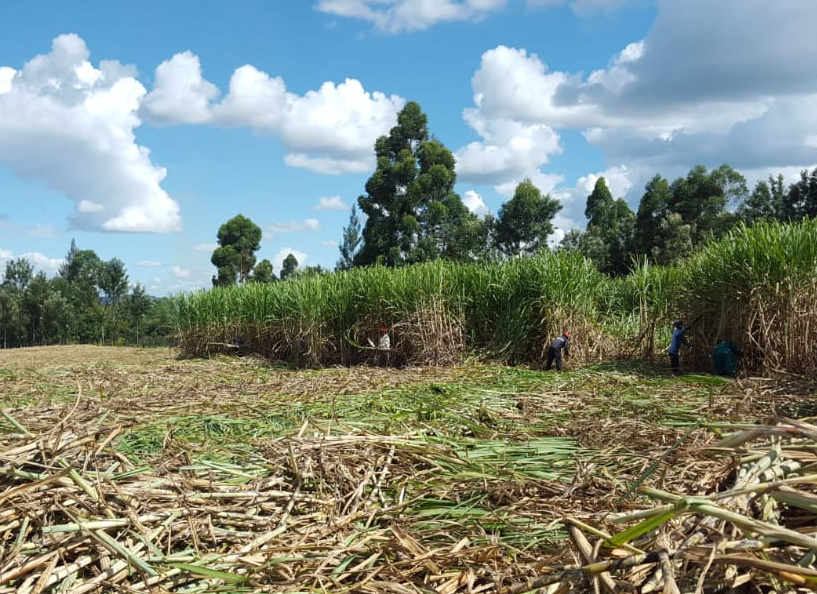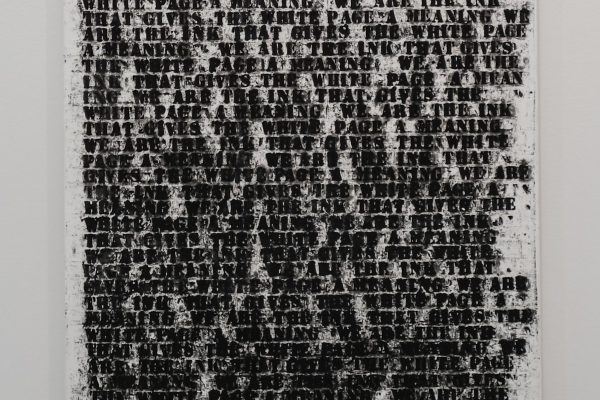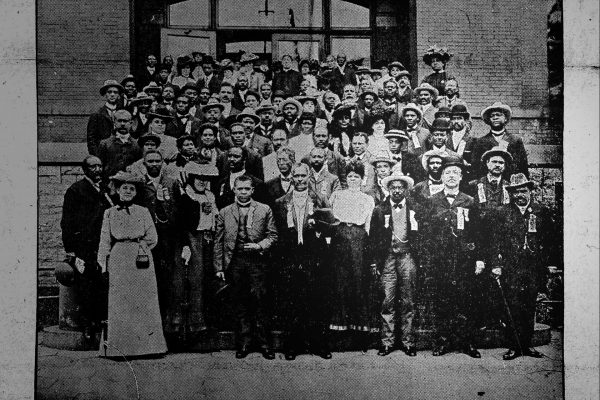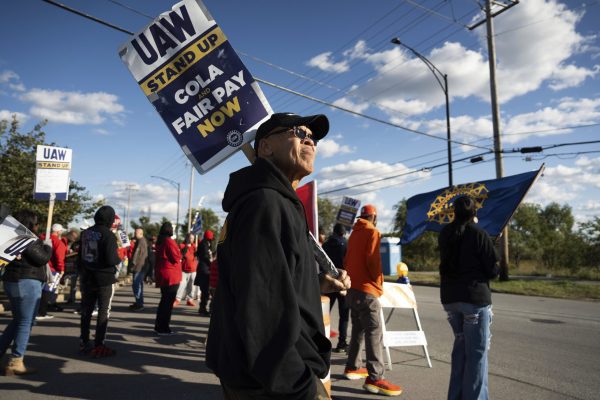This essay appears in print in Speculation.
“You need to do a police investigation,” wrote one of my siblings on our family group chat, “a thorough investigation.” On January 17, 2023, someone set fire to my brother Jumba’s five-acre sugarcane garden. Three days after the fire, my brother received a phone call informing him that thieves had gotten into his compound and broken the cement cover on his borehole and stolen the electric pump.
Jumba’s land is in western Kenya, about sixty miles from the village where we grew up. The area, known as the western highland plateau during the colonial period, was occupied by white settlers who confiscated land from the local Nandi people. After independence the land was redistributed to Kenyans but somehow Luyias (my family is Luyia) and Kikuyus ended up buying most of it, further displacing the original Nandi owners. Since the 1970s the Nandi people have intermittently fought these “outsiders” in attempts to reclaim their land; some of the ethnic tensions have resulted in the loss of life.
A few years after Jumba arrived in the United States, about twenty-seven years ago, he decided to buy a six-acre plot in this area. “An investment,” he told me. Eventually he fenced in the land and a few years later dug a borehole for water, built a small cottage, and created a beautifully manicured yard and flower garden. He planted sugarcane on the remaining space and sells the cane to the local sugar processing company for about $12,000 every fifteen months. After you subtract the cost of maintaining the land—a caretaker for the cottage and workers who plant and weed and harvest the sugarcane—he takes home about $6,000. This, at least, is what my brother told me when I visited him at his home in the suburbs of Washington, D.C., three days before his sugarcane was burnt to ashes.
Jumba does not really need the income. He makes a good living here as a computer security expert, so his financial and emotional investment in this remote African acreage puzzled me. “That is not much profit given all the headaches you go through to keep up the property,” I said to him, thinking that he should sell the land. He didn’t get my point, and instead explained to me his reasons for buying the land in the first place: “See, if you don’t develop the land, people will think it is empty land and will just take it.” He then described how the people in the area are “hostile” and that when he goes to Kenya, he never spends a night in the cottage because he is afraid of being hacked to death by machete-wielding locals. As we talked, I became even more baffled as to why he kept property that was barely profitable and even physically dangerous. I finally just came out and suggested that he would be better off if he sold the land and invested the money here in the United States. But no. Though he might eventually sell the land, for now he liked the idea of owning that property. “It is a thing,” he said jokingly. Yes, I thought, a thing—an undeniably genuine attachment to the idea of a homeland.
Jumba was rolling out a perfect circle of chapati dough while I was standing by the cooking stove heating up an oiled cast iron pan. Making chapatis is one of the things we do when we get together. Arguing about who among us did more chores, ran more errands, or generally suffered more hardship while we were growing up in the village is another tradition. Almost inevitably we end up discussing why Africa is poor and why we don’t feel comfortable going back to Kenya to live permanently, and why we Africans are just generally screwed. My sixteen-year-old son Stefan, born and raised in middle-class America, listened with an indulgent smile. To him our talk of homeland or African diaspora must seem an amusing fiction.
I flipped a nicely browned chapati, and then turned to Jumba and said, “I think if I were to invest in Kenya, I would go buy one of the dilapidated empty buildings in Central Nairobi and start gentrification in downtown Nairobi.” He laughed to my face—“that,” he said, “would be very dangerous. You don’t want to do that. You will die.” According to my brother, there is a fierce network of organized crime controlling property development in Nairobi, and I couldn’t possibly survive it. We laughed at my ignorance and shifted our conversation to his recent trip to Thailand. His flight from Nairobi was full of Kenyan tourists traveling to Bangkok, some with their families, some single professional women. I asked Jumba what these people did for a living. “Business,” Jumba replied amusedly. I asked what kind of business. Again, he started laughing. “When I asked them, they all just said, ‘business’”—this time he enhanced the word business with two-fingered air quotations. And once again he began schooling my naïveté. “See, Kenda, these are probably some of the businesspeople who would do everything to prevent you from refurbishing that empty building in central Nairobi you are thinking of buying. They own lots of rental property in the suburbs of Nairobi and would immediately see you as competition. They would send someone to set that building on fire as soon as you started fixing it. There is no such a thing as property rights in Kenya,” he said. We clapped our hands and laughed even louder.
A few days after we returned from our visit, I told Stefan that his uncle Jumba’s sugarcane had been torched. “Mom,” he replied, “you jinxed it for him when you told him to sell the land.” It made me wonder. Had I? All over Africa migrants to the United States, Europe, and China have been returning to their homes to buy property, either as an investment or to prove to the locals that they have succeeded abroad. Or, like my brother, because they want to maintain a connection to their homelands. Rarely do these property owners spend much time on the land or in the houses since their full-time lives are abroad. Typically they employ a caretaker, usually someone from the local community; they install solar panels and electricity and dig boreholes; they plant cash crops like sugarcane, tea, or coffee—and meanwhile many of their neighbors live in grass-thatched mud huts without running water or electricity, and rarely do they have enough land to plant food crops to feed their families. It is no wonder, to me, that locals resent the owners of these empty compounds or that they gang together to steal or set the property on fire. They are protesting their marginalization within their own communities.
As I was chatting with my son about my uncanny ability to jinx property halfway around the world, my other brother, Ambayi, texted. He, too, lives a comfortable middle-class life as an accountant in Charlotte, North Carolina. Like the rest of us, he had to offer his thoughts. “Jumba,” he wrote on our family group chat, “you might consider getting dogs.” But this, it turns out, was just another bit of unknowing and unwary advice. “Thieves,” according to Jumba, “can always poison dogs.” Finally, unable to offer any more tips on crime prevention, we quietly turned to speculating on the nature of the crime. “This must be an inside job,” Ambayi texted back, and my other siblings signaled their agreement with thumbs-up emojis.
All the more reason an investigation wouldn’t work, as I’d warned in my initial response. “I hate to sound cruel”—but I couldn’t help myself, so I went on—“don’t these local people have a point. This is a community protest; a single individual is less likely to succeed in any kind of investigation.” (This is, of course, what Ambayi had implied when he said the theft and vandalism was an “inside job.”) “The people who burnt down the sugarcane and stole the electric pump are angry, united local people who feel that people abroad should not own empty compounds when they themselves could use that land to grow crops.” As soon as I had posted this pronouncement on the chat, I felt bad. I was not sympathizing with my brother who had, after all, just shared a video of burning sugarcane and a destroyed pump—crimes he felt so viscerally, so intimately, because they weren’t merely attacks upon his property, but attacks upon the very idea of a shared homeland. He was, it seemed, being alienated by his own. The next day Jumba posted a video of seven male workers cutting the sugarcane that had survived the fire and could be send to the factory. “Leo tutakula vizuri”—today we shall eat well—one of the workers said, loading up the sugarcane on a truck. “See, Kenda,” Jumba wrote to all of us, “in spite of the arsonists’ hatred towards me, I still provide the locals with employment.” “Aaah, that is an interesting angle,” I replied right away. “Yep” he wrote back, “I am not, after all, a snobbish bourgeois who lives abroad”—this he emphasized with several grinning emojis.
It is easy for me to be skeptical. I have made my career analyzing protest groups in Kenya and in other parts of Africa, and I teach about the Africans who burnt white settler crops during the Mau Mau rebellion that helped end colonial rule in Kenya. I am currently researching Kenyan students who burn down their schools as a form of protest. In other words, I teach and write about structural violence, and what happened to my brother’s land seemed to me just another instance—albeit with a different cast of characters, and in a different set of circumstances.
At the same time, the fact that the violence is “structural” doesn’t mean people aren’t hurt. How are those living in the diaspora able to feel connected to their homeland without appearing as little more than colonizers themselves? How can one move away and still hold onto a piece of one’s past? It is relatively easy to stay connected in an abstract way, to gather in the kitchen and make perfect round chapatis and discuss the politics and culture of the homeland at a comfortable distance. It is also easy to envision a welcome home absent of the legacies of violence and colonialism where one is greeted warmly as a compatriot and benefactor. But, sadly, nostalgia like this threatens to become speculative—in both senses of the word—even when it involves only a few arable acres. Regardless of the dreams it may inspire, the land itself remains fixed, immovable. It exists outside the realm of longing and emotion, stubbornly rooted in conflict and encumbered by history. It remains a thing.








